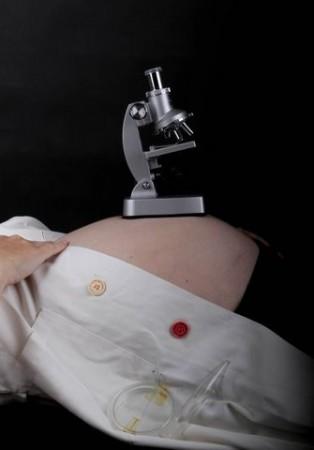
Scientists have developed a safer and more effective in vitro fertilisation (IVF) method that helps avoid several dangerous complications associated with the standard conventional infertility treatment.
Twelve healthy babies have been born using the new method that uses a natural hormone kisspeptin injection to stimulate ovaries and make the eggs mature.
Currently, hormone hCG (human chorionic gonadotropin) is used for this purpose. But, hCG treatment often does not work properly in many women and leads to a condition known as ovarian hyperstimulation syndrome (OHSS).
There does not exist any proper guidelines to show the exact amount of medications needed to stimulate the ovaries. An overexposure to the hormone, according to the experts at the Mayo Clinic in US, sometimes leads to ovarian hyperstimulation syndrome, where the ovaries become swollen.
The condition can lead to weight gain, vomiting, abdominal pain, shortness of breath, blood clots, kidney failure and even death. In rare occasions, certain oral medications taken during fertility treatments like clomiphene can also lead to the condition.
The safety and effectiveness of the new technique was tested on 53 women undergoing treatment at the Hammersmith Hospital in London. During the treatment, the women received a single injection of kisspeptin. Of the total, 51 had matured eggs and 49 got implanted fertilised embryos in the uterus and 12 got pregnant.
Researchers found their findings highly promising and revealed their plans to use the new technique on women with polycystic ovary syndrome (PCOS), a common hormonal disorder that leads to irregular menstrual periods, acne, obesity and excess facial and body growth in women. The condition impairs fertility, leads to problems in becoming pregnant and also increases the risk of ovarian hyperstimulation syndrome.
"OHSS is a major medical problem. It can be fatal in severe cases and it occurs in women undergoing IVF treatment who are otherwise very healthy. We really need more effective natural triggers for egg maturation during IVF treatment, and the results of this trial are very promising," Professor Waljit Dhillo from the Imperial College London, who led the study, said in a news release.
"Our study has shown that kisspeptin can be used as a physiological trigger for egg maturation in IVF therapy," Dhillo, added later. "It's been a joy to see 12 healthy babies born using this approach. We will now be doing more studies to test whether kisspeptin reduces the risk of OHSS in women who are most prone to developing it, with a view to improving the safety of IVF therapy."
Results of the study have been reported in the Journal of Clinical Investigation.










